
Are Mother of Thousands Succulents Toxic to Pets?
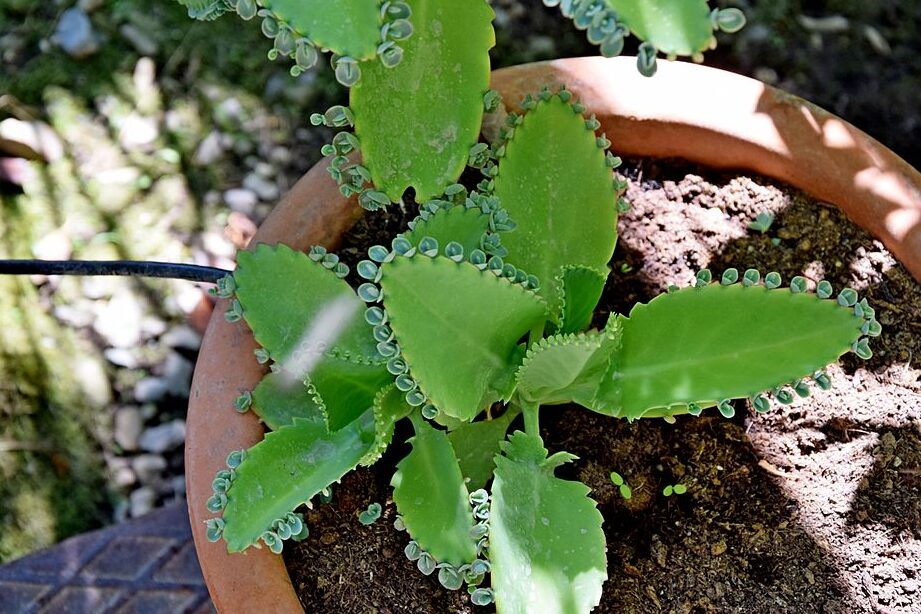
Succulents have become incredibly popular houseplants in recent years, thanks to their unique and striking appearance, as well as their reputation for being low-maintenance. One popular succulent variety is the Mother of Thousands (Kalanchoe daigremontiana), known for its ability to reproduce rapidly through tiny plantlets that grow along the edges of its leaves. However, as pet owners, it's essential to consider the safety of our furry friends before introducing any new plant into our homes.
We will explore whether Mother of Thousands succulents are toxic to pets. We will discuss the specific toxins present in these plants and how they can affect dogs, cats, and other common household pets. Additionally, we will provide tips on how to keep our pets safe around these succulents and suggest pet-friendly alternatives for those who still want to enjoy the beauty of succulents without putting their pets at risk.
- Yes, Mother of Thousands succulents are toxic to pets
- Keep pets away from Mother of Thousands plants to avoid poisoning
- If a pet ingests Mother of Thousands, seek veterinary help immediately
- Place Mother of Thousands plants in an area inaccessible to pets
- Consider choosing pet-friendly plants instead of Mother of Thousands
- Educate yourself on the signs and symptoms of plant poisoning in pets
- Be proactive in preventing your pets from coming into contact with toxic plants
- Consult a veterinarian for advice on pet-safe plant options
- Monitor your pet closely if they have been exposed to Mother of Thousands
- Take immediate action if you suspect your pet has consumed Mother of Thousands
- Frequently Asked Questions
Yes, Mother of Thousands succulents are toxic to pets
When it comes to keeping pets safe, it's important to be aware of potential hazards in and around our homes. One such hazard that pet owners should be cautious about is the Mother of Thousands succulent plant. While these plants may be beautiful and unique, they can pose a threat to the health of our furry friends.
One of the main reasons why Mother of Thousands succulents are toxic to pets is due to the presence of a toxic compound called bufadienolides. This compound is found in various parts of the plant, including the leaves and stems. Bufadienolides can cause a range of symptoms in pets, including vomiting, diarrhea, drooling, lethargy, and even more severe effects such as heart arrhythmias and kidney failure.
It's important to note that the toxicity of Mother of Thousands succulents is not limited to cats and dogs. Other pets such as birds, rabbits, and guinea pigs can also be affected by the toxic compounds present in these plants.
If you suspect that your pet has ingested any part of a Mother of Thousands succulent, it is crucial to seek veterinary care immediately. The veterinarian will be able to determine the best course of action based on the symptoms presented by your pet. In some cases, inducing vomiting and providing supportive care may be necessary.
To prevent accidental ingestion of Mother of Thousands succulents, it's recommended to keep these plants out of reach of pets. Placing them in hanging baskets or on high shelves can help ensure that your pets cannot access them. Additionally, if you notice any signs of plant toxicity in your pet, it's essential to remove them from the area where the plant is located to prevent further exposure.
 Identifying Root Rot: Spotting Unhealthy and Healthy Roots
Identifying Root Rot: Spotting Unhealthy and Healthy RootsWhile Mother of Thousands succulents may be a popular choice for plant enthusiasts, it's crucial to prioritize the safety and well-being of our pets. By being aware of the potential dangers and taking necessary precautions, we can help keep our furry friends safe from toxic plants.
Keep pets away from Mother of Thousands plants to avoid poisoning
Many pet owners love to fill their homes with beautiful plants to create a welcoming and natural environment. However, it's important to be aware of the potential dangers some plants can pose to our furry friends. One such plant is the Mother of Thousands succulent (Bryophyllum daigremontianum), which can be toxic to pets if ingested.
Identifying the Mother of Thousands succulent
The Mother of Thousands, also known as the Mexican Hat Plant or Alligator Plant, is a popular succulent due to its unique appearance and ability to propagate easily. It features thick, fleshy leaves that are adorned with small plantlets along the edges. These plantlets can easily break off and take root, giving rise to new plants.
Note: It's crucial to remember that the Mother of Thousands is toxic to pets, so pet owners should exercise caution when growing this plant in their homes.
Dangers of Mother of Thousands toxicity
When it comes to the Mother of Thousands succulent, the entire plant contains toxic compounds called bufadienolides. These compounds can cause adverse effects if ingested by pets, including dogs, cats, and even small animals like birds and rodents.
Common symptoms of Mother of Thousands poisoning in pets include:
 Managing White Fuzz on Succulents: Causes and Solutions
Managing White Fuzz on Succulents: Causes and Solutions- Vomiting
- Diarrhea
- Loss of appetite
- Lethargy
- Excessive drooling
- Abdominal pain
If you suspect that your pet has ingested any part of the Mother of Thousands plant, it's important to seek immediate veterinary care. Prompt treatment can help minimize the severity of the poisoning and improve your pet's chances of recovery.
Preventing Mother of Thousands poisoning
To ensure the safety of your pets, it's best to avoid having Mother of Thousands plants in your home. If you already have this succulent, consider relocating it to an area where your pets cannot access it.
Other preventative measures include:
- Keeping plants out of reach: Place plants in areas that are inaccessible to your pets, such as high shelves or hanging baskets.
- Supervising outdoor time: If you have Mother of Thousands plants in your garden, make sure to supervise your pets when they are outdoors to prevent them from nibbling on any toxic plants.
- Providing alternative chewing options: Offer safe and pet-friendly chew toys to divert your pet's attention away from plants.
- Educating yourself and others: Spread awareness about the potential dangers of Mother of Thousands plants to help pet owners make informed decisions.
By taking these precautions, you can create a pet-friendly environment that is safe and enjoyable for both you and your furry companions.
If a pet ingests Mother of Thousands, seek veterinary help immediately
The Mother of Thousands succulent, also known by its scientific name Bryophyllum delagoense, is a popular houseplant among succulent enthusiasts. However, if you have pets in your home, it's important to be aware of the potential toxicity of this plant.
Is Mother of Thousands toxic to pets?
 Ant-Free Succulents: Effective Ways to Eliminate Ants
Ant-Free Succulents: Effective Ways to Eliminate AntsYes, Mother of Thousands is considered toxic to pets, including dogs and cats. The plant contains compounds called bufadienolides, which are toxic to animals when ingested. These compounds can cause a range of symptoms, depending on the amount ingested and the size of the pet.
What are the signs of Mother of Thousands poisoning in pets?
If your pet has ingested Mother of Thousands, there are several signs you should look out for:
- Vomiting
- Diarrhea
- Lethargy
- Loss of appetite
- Increased heart rate
- Tremors
- Seizures
If you notice any of these symptoms or suspect that your pet has ingested the plant, it is crucial to seek veterinary help immediately. Time is of the essence when it comes to treating plant toxicities, and early intervention can greatly increase the chances of a positive outcome.
How can I prevent my pets from accessing Mother of Thousands?
To keep your pets safe, it's important to take preventive measures:
- Place the Mother of Thousands plant in an area that is inaccessible to your pets. Consider hanging it from the ceiling or placing it on a high shelf.
- If you have cats, avoid using low planters or pots that they can easily knock over or dig in.
- Teach your pets to avoid chewing on or investigating plants. Training them to stay away from plants can help reduce the risk of accidental ingestion.
- If you have multiple plants in your home, make sure to research the toxicity of each one and take appropriate precautions.
Conclusion
 Signs of a Dying Succulent: Understanding Leaf Loss
Signs of a Dying Succulent: Understanding Leaf LossMother of Thousands succulents are toxic to pets and can cause various symptoms if ingested. It's crucial to be vigilant and take preventive measures to ensure the safety of your furry friends. If you suspect your pet has ingested this plant or any other potentially toxic plant, don't hesitate to seek veterinary help immediately.
Place Mother of Thousands plants in an area inaccessible to pets
If you are a proud pet owner and also love succulents, it's important to ensure that the plants you bring into your home are safe for your furry friends. One popular succulent that you may come across is the Mother of Thousands plant. But are Mother of Thousands succulents toxic to pets? Let's find out.
Understanding Mother of Thousands Succulents
The Mother of Thousands plant, also known as Bryophyllum daigremontianum, is a unique succulent that is native to Madagascar. It is characterized by its interesting growth pattern and ability to reproduce quickly. This plant produces tiny plantlets along the edges of its leaves, which then fall off and root themselves in the surrounding soil.
Mother of Thousands succulents have become popular houseplants due to their low maintenance requirements and attractive appearance. However, it's important to note that certain parts of the plant contain compounds that can be harmful to pets if ingested.
Potential Toxicity to Pets
The leaves and stems of the Mother of Thousands plant contain a toxic substance called daigremontianin. This compound is known to cause gastrointestinal upset in pets, including symptoms such as vomiting, diarrhea, and loss of appetite. In severe cases, it can even lead to more serious complications.
It's worth mentioning that the level of toxicity can vary depending on the individual pet and the amount ingested. Some pets may only experience mild symptoms, while others may have a more severe reaction. Additionally, certain animals, such as cats, may be more sensitive to the toxic compounds in this plant compared to others.
Precautions to Take
If you have Mother of Thousands succulents in your home and you also have pets, it's crucial to take some precautions to ensure their safety:
 Can Succulents Trigger Allergies in Certain Individuals?
Can Succulents Trigger Allergies in Certain Individuals?- Keep the plants out of reach: Place your Mother of Thousands plants in an area that is inaccessible to your pets. Consider using hanging baskets or placing them on high shelves to prevent curious pets from reaching them.
- Monitor your pets: Keep an eye on your pets when they are around the plants. If you notice any signs of ingestion or abnormal behavior, contact your veterinarian immediately.
- Consider pet-friendly alternatives: If you want to play it safe, opt for pet-friendly succulents that are non-toxic to cats and dogs. There are plenty of options available that can still add beauty to your home without posing a risk to your furry friends.
Remember, it's always better to be safe than sorry when it comes to the well-being of your beloved pets. By taking these precautions and being aware of the potential risks, you can enjoy your Mother of Thousands succulents while keeping your pets safe and healthy.
Consider choosing pet-friendly plants instead of Mother of Thousands
When it comes to creating a safe and healthy environment for our beloved pets, it's important to carefully choose the plants we bring into our homes. While succulents have gained popularity in recent years, not all of them are pet-friendly. One such succulent that pet owners should be cautious about is the Mother of Thousands (Kalanchoe daigremontiana).
What makes Mother of Thousands potentially harmful to pets?
The Mother of Thousands succulent contains a toxic compound called bufadienolide cardiac glycosides. This compound can be harmful to both dogs and cats if ingested. When pets nibble on or consume parts of this plant, they may experience symptoms such as vomiting, diarrhea, drooling, excessive thirst, and in severe cases, even heart abnormalities.
Alternatives to consider:
- Spider Plant (Chlorophytum comosum): A popular choice for pet owners, the Spider Plant is non-toxic to both cats and dogs. It's also a low-maintenance plant that thrives in a variety of light conditions.
- Areca Palm (Dypsis lutescens): Not only is the Areca Palm a safe choice for pets, but it also acts as a natural air purifier. This tropical plant requires bright, indirect light and regular watering.
- Money Tree (Pachira aquatica): With its unique braided trunk and vibrant green leaves, the Money Tree is not only visually appealing but also pet-friendly. This plant prefers bright, indirect light and moderate watering.
Conclusion:
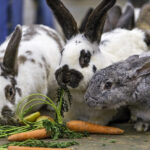 Protecting Your Garden: Understanding if Rabbits Will Eat Succulents
Protecting Your Garden: Understanding if Rabbits Will Eat SucculentsWhile the Mother of Thousands succulent may be visually stunning, it's crucial to prioritize the safety and well-being of our furry friends. By opting for pet-friendly plants like the Spider Plant, Areca Palm, or Money Tree, you can create a beautiful and pet-safe environment in your home.
Educate yourself on the signs and symptoms of plant poisoning in pets
As pet owners, it is our responsibility to ensure the safety and well-being of our furry friends. While we may enjoy having houseplants and succulents in our homes, it is vital to be aware of any potential dangers they may pose to our pets. One particular plant that often raises concerns among pet owners is the Mother of Thousands succulent.
What is a Mother of Thousands succulent? The Mother of Thousands succulent, also known as Bryophyllum daigremontianum, is a unique and visually striking plant. Native to Madagascar, this succulent is characterized by its ability to produce numerous plantlets along the edges of its leaves. These plantlets eventually drop off and can root themselves, giving rise to new plants.
Despite its fascinating growth habit, it is important to note that the Mother of Thousands succulent contains certain compounds that can be toxic to pets if ingested.
Signs and symptoms of plant poisoning in pets It is crucial for pet owners to be able to recognize the signs and symptoms of plant poisoning in their pets. Some common indicators of plant toxicity include:
- Vomiting
- Diarrhea
- Excessive drooling
- Lethargy
- Loss of appetite
- Difficulty breathing
- Irregular heartbeat
If you notice any of these symptoms in your pet, it is essential to seek veterinary attention immediately. Timely intervention can make a significant difference in your pet's recovery.
Is the Mother of Thousands succulent toxic to pets? Yes, the Mother of Thousands succulent is considered toxic to both cats and dogs. The plant contains compounds called bufadienolides, which can cause gastrointestinal irritation and, in severe cases, more significant health issues.
 Causes of Death Blooms in Succulent Plants: A Comprehensive Analysis
Causes of Death Blooms in Succulent Plants: A Comprehensive AnalysisIf your pet ingests any part of the Mother of Thousands succulent, it is best to contact your veterinarian right away. They can provide guidance on the appropriate steps to take and may recommend bringing your pet in for an examination.
Remember: Prevention is key to ensuring the safety of your pets. Keep potentially toxic plants out of reach, and consider providing alternative pet-friendly plants for your furry friends to enjoy.
While the Mother of Thousands succulent may be an intriguing addition to your plant collection, it is crucial to prioritize the well-being of your pets. Understanding the signs of plant poisoning and being aware of the potential toxicity of certain plants, including the Mother of Thousands succulent, can help safeguard your beloved companions.
By staying informed and taking necessary precautions, you can create a pet-friendly environment that promotes both the health and happiness of your four-legged family members.
Be proactive in preventing your pets from coming into contact with toxic plants
As pet owners, it's crucial to ensure the safety of our furry friends. This includes being aware of any potential hazards in our homes, such as toxic plants. One popular houseplant that has gained quite a bit of attention in recent years is the Mother of Thousands succulent.
What is the Mother of Thousands succulent?
The Mother of Thousands succulent, scientifically known as Bryophyllum delagoense, is a unique and visually appealing plant native to Madagascar. Its striking appearance, with clusters of tiny plantlets along the edges of its leaves, has made it a popular choice among plant enthusiasts.
Potential toxicity to pets
While the Mother of Thousands succulent may be aesthetically pleasing, it's important to note that it can be toxic to pets if ingested. The plant contains a naturally occurring compound called bufadienolides, which can cause gastrointestinal upset, vomiting, diarrhea, and, in severe cases, even liver damage.
 Using Neem Oil for Pest Control on Succulents: A Natural Solution
Using Neem Oil for Pest Control on Succulents: A Natural SolutionIt's essential to exercise caution and take appropriate measures to prevent your pets from coming into contact with this potentially harmful plant.
Preventing pet exposure
To ensure the safety of your pets, consider the following preventive measures:
- Place the Mother of Thousands succulent in areas that are inaccessible to your pets. This could include high shelves or rooms where pets are not allowed.
- If you have cats, consider hanging the plant from the ceiling or using a plant hanger to keep it out of reach.
- Supervise your pets when they are around plants and redirect their attention to pet-friendly alternatives, such as cat grass or dog-safe chew toys.
- Consider using pet-friendly deterrents, such as bitter sprays, to discourage your pets from approaching the plant.
What to do if your pet ingests the Mother of Thousands succulent?
If you suspect that your pet has ingested the Mother of Thousands succulent or any other toxic plant, it's crucial to seek veterinary assistance immediately. The veterinarian will be able to provide appropriate guidance and treatment to mitigate any potential harm to your pet.
Remember, being proactive in preventing your pets from coming into contact with toxic plants is the best way to ensure their well-being.
By taking the necessary precautions and staying informed about potentially harmful plants like the Mother of Thousands succulent, you can create a safe and pet-friendly environment in your home.
Consult a veterinarian for advice on pet-safe plant options
When it comes to creating a pet-friendly environment in your home, it's important to consider the plants you have. Some plants can be toxic to pets, causing various health issues if ingested. One popular houseplant that often raises concerns among pet owners is the Mother of Thousands succulent.
 Identifying Scale Infestation on Succulents: A Guide for Plant Lovers
Identifying Scale Infestation on Succulents: A Guide for Plant LoversWhat is a Mother of Thousands succulent?
Also known as Bryophyllum daigremontianum, the Mother of Thousands succulent is a unique plant that belongs to the Crassulaceae family. Native to Madagascar, this succulent is known for its ability to produce numerous baby plantlets along the edges of its leaves, giving it the name "Mother of Thousands."
Are Mother of Thousands succulents toxic to pets?
Unfortunately, Mother of Thousands succulents are considered toxic to pets. The plant contains compounds called bufadienolides, which can be harmful when ingested by dogs, cats, and other animals. If your pet chews on or ingests this succulent, it may experience symptoms such as vomiting, diarrhea, lethargy, and even heart abnormalities.
What precautions should pet owners take?
If you have a Mother of Thousands succulent in your home and you also have pets, it's essential to take some precautions to ensure their safety:
- Keep the plant out of reach: Place the succulent in a location where your pets cannot access it. Consider using hanging baskets or placing it on high shelves.
- Monitor your pets: Keep an eye on your pets when they are near the plant. Discourage them from chewing on it and redirect their attention to pet-safe toys or treats.
- Consider pet-safe alternatives: If you are concerned about the safety of your pets, it might be best to opt for pet-friendly plants instead. Consult with a veterinarian or do some research to find suitable options for your home.
Consult a veterinarian for advice
 The Causes of Succulent Leaf Loss Upon Touch: A Comprehensive Guide
The Causes of Succulent Leaf Loss Upon Touch: A Comprehensive GuideWhen it comes to the health and safety of your pets, it's always best to consult a veterinarian. They can provide specific advice tailored to your pet's needs and help you create a pet-friendly environment in your home. If you suspect your pet has ingested any part of a Mother of Thousands succulent, seek veterinary assistance immediately.
Remember, responsible pet ownership involves being aware of potential hazards and taking necessary precautions to keep your furry friends safe. By making informed choices about the plants you have in your home, you can create a beautiful and pet-friendly environment for everyone to enjoy.
Monitor your pet closely if they have been exposed to Mother of Thousands
If you have a furry friend at home and you also happen to be a plant lover, it is important to be aware of the potential risks certain plants may pose to your pet's health. One popular houseplant that has gained a lot of attention recently is the Mother of Thousands succulent. But, are Mother of Thousands succulents toxic to pets?
The short answer is yes, Mother of Thousands succulents can be toxic to pets, including cats and dogs. This plant contains a compound called bufadienolides, which can cause gastrointestinal upset if ingested by your pet.
Common Symptoms:
- Vomiting
- Diarrhea
- Loss of appetite
- Lethargy
If you suspect that your pet has ingested or come into contact with a Mother of Thousands succulent, it is important to monitor them closely for any signs of distress or unusual behavior. Keep an eye out for the symptoms mentioned above, and if you notice any of them, it is crucial to seek veterinary assistance immediately.
Prevention is key:
To ensure the well-being of your pets, it is best to prevent any potential exposure to toxic plants altogether. Here are some steps you can take:
- Avoid bringing toxic plants into your home. Research the plants you have or plan to have, and make sure they are safe for your pets.
- Place plants out of reach. Keep them on high shelves or in areas where your pets cannot access them.
- Train your pets to avoid plants. Teach them not to chew or play with any plants, even if they are non-toxic.
- Consider using pet-friendly alternatives. If you still want to have plants in your home, opt for pet-friendly varieties that pose no harm to your furry friends.
Remember, the safety and well-being of your pets should always be a top priority. By being aware of the potential dangers that certain plants may pose and taking preventive measures, you can help ensure a safe and happy environment for both your plants and your pets.
Take immediate action if you suspect your pet has consumed Mother of Thousands
If you suspect that your pet has consumed Mother of Thousands succulents, it is important to take immediate action. While these plants may add beauty to your home or garden, they can be toxic to pets if ingested.
Symptoms of Mother of Thousands ingestion
If your pet has consumed the leaves or stems of Mother of Thousands succulents, they may exhibit certain symptoms. These can include vomiting, diarrhea, lethargy, loss of appetite, drooling, and in severe cases, difficulty breathing or seizures.
What to do if your pet has ingested Mother of Thousands
If you suspect that your pet has ingested Mother of Thousands, it is important to seek veterinary attention immediately. Time is of the essence when it comes to potential plant toxicities. Contact your veterinarian or an emergency animal hospital for guidance.
Preventing access to Mother of Thousands
To avoid potential poisoning incidents, it is crucial to prevent your pets from accessing Mother of Thousands succulents. Here are a few steps you can take:
- Keep Mother of Thousands plants out of reach of your pets, either by placing them on high shelves or using hanging planters.
- If you have a garden, consider fencing off areas where Mother of Thousands succulents are planted to prevent your pets from getting near them.
- Train your pets to avoid chewing or playing with plants. This can be achieved through positive reinforcement and redirection to appropriate toys or activities.
Conclusion
While Mother of Thousands succulents can be a lovely addition to your home or garden, it is crucial to be aware of their potential toxicity to pets. By taking preventative measures and being vigilant, you can ensure the safety and well-being of your furry friends.
Frequently Asked Questions
1. Are Mother of Thousands Succulents toxic to pets?
Yes, Mother of Thousands succulents (Kalanchoe daigremontiana) are toxic to pets, especially cats and dogs.
2. What are the symptoms of pet poisoning from Mother of Thousands succulents?
Common symptoms of pet poisoning from Mother of Thousands succulents include vomiting, diarrhea, drooling, and lethargy.
3. How can I keep my pets safe from Mother of Thousands succulents?
To keep your pets safe, it is best to keep Mother of Thousands succulents out of their reach. Consider placing them in hanging baskets or on high shelves.
4. What should I do if my pet ingests Mother of Thousands succulents?
If your pet ingests Mother of Thousands succulents, it is important to seek veterinary help immediately. Call your vet or an animal poison control hotline for guidance.
If you want to read more articles similar to Are Mother of Thousands Succulents Toxic to Pets?, you can visit the Pests and Diseases category.

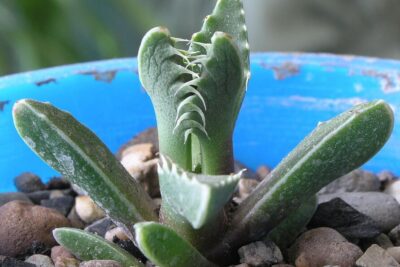

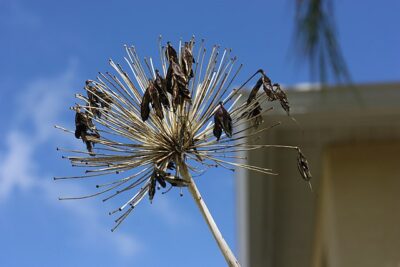
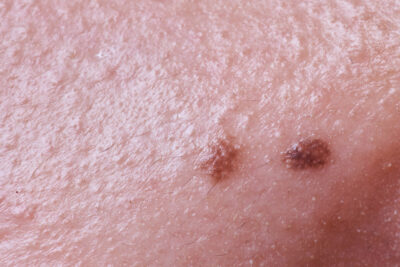
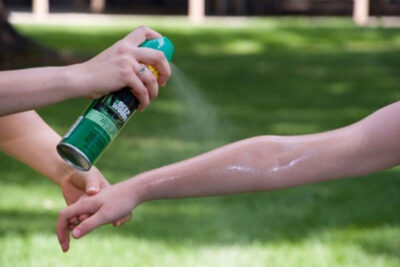
You Must Read